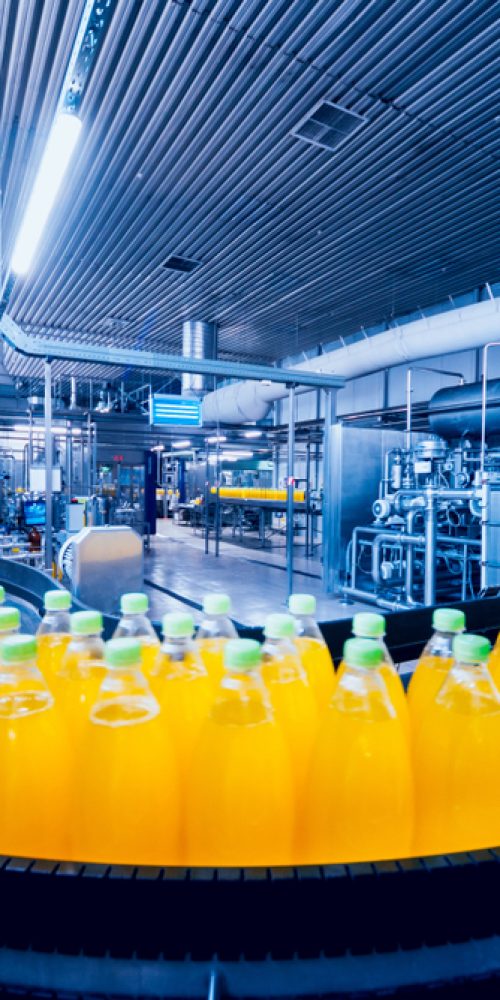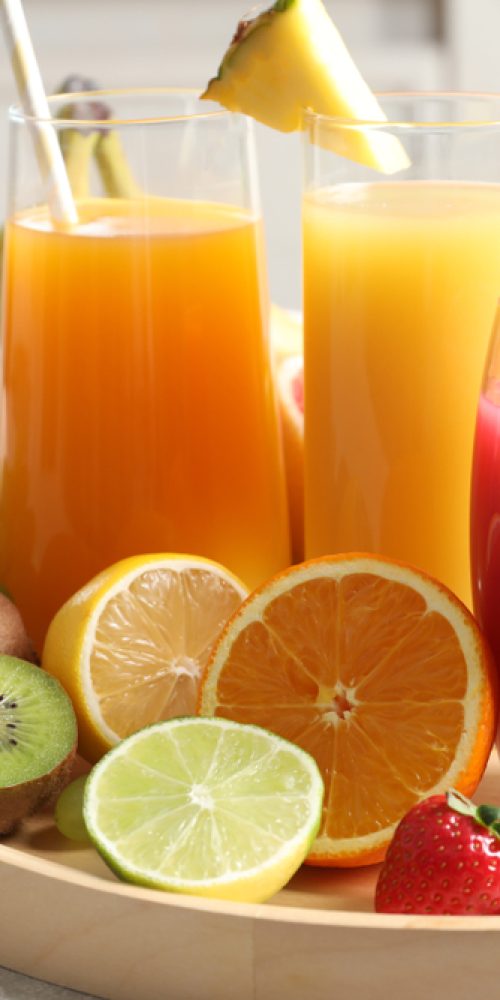Food & Beverages Industry
The inaugural industrial deployment of activated carbon traces back to the food sector, notably in the sugar industry. In 1794, an English sugar refinery pioneered the use of wood-derived activated carbon. Presently, activated carbons find multifarious applications, spanning from refining edible oils and fats to enhancing processes in the beverage industry such as fruit juices, wine, and beer production, alongside food coloring like E153. Additionally, activated carbon serves decolorization purposes, eliminates dissolved organic compounds, and mitigates odor and taste issues.
Our bespoke products boast consistent particle size distribution, high purity, and optimal pH levels, rendering them apt and secure for an array of applications. These range from decolorizing edible oils and sugar syrups to purifying glycerine and alcohol, decaffeination, manufacturing soft drinks, beer processing, and purifying fruit juices and other food derivatives.
Optimized for search engines, this content highlights the versatility and quality of Ceycarb LLC offerings in the realm of activated carbon solutions.


Soft Drinks & Beverages
Soft Drinks & Beverages: Water utilized in the production of beer, bottled water, and soft drinks often undergoes treatment with activated carbon to ensure compliance with industry standards and food regulations. Our carbon products effectively eliminate various pollutants, undesirable substances, tastes, and odors.
Fruit Juice
In the fruit juice industry, the levels of undesirable secondary components vary depending on the quality of raw materials. Understanding the primary pigment for decolorization is crucial in determining the optimal grade of activated carbon.
Fruit Juice
In the fruit juice industry, the levels of undesirable secondary components vary depending on the quality of raw materials. Understanding the primary pigment for decolorization is crucial in determining the optimal grade of activated carbon.
Beer & Wine
Beverage manufacturing frequently relies on activated carbon, a versatile tool used in various processes. Activated carbon serves several purposes, including dechlorinating process water in bottling plants, purifying water by removing undesired components and pollutants, and altering flavor and color. The choice of activated carbon grade depends on the specific task at hand: chemically activated carbon types are employed for decolorization, while steam-activated carbon types are preferred for taste and odor control.
One notable application is the use of powdered activated carbon to decolorize red wine, transforming it into vermouth or producing white wine from dark grapes.
In the creation of high-quality spirits such as wine, beer, and vodka, activated carbon plays a crucial role in purifying taste and odor. It is particularly effective in eliminating acetaldehyde and branched alcohols that may affect the final product’s quality.
Ceycarb LLC’s top-notch activated carbon is instrumental in enhancing the quality of beverages, ensuring purity and optimal flavor profiles.
Sugar Syrups, Dextrose, Fructose, And Others
Beverage manufacturing frequently involves the use of activated carbon: it plays crucial roles such as dechlorinating process water in bottling plants, purifying water, eliminating undesired components and pollutants, and modifying flavor and color. The choice of activated carbon grade depends on the specific task at hand, with chemically activated carbon types preferred for decolorization and steam-activated carbon types for taste and odor control.
A notable application is the use of powdered activated carbon to decolorize red wine for producing vermouth or white wine from dark grapes.
High-quality activated carbon characteristics, such as those found in Ceycarb LLC products, are vital in creating premium spirits like wine, beer, and vodka. They ensure the purification of taste and odor, primarily targeting the removal of acetaldehyde and branched alcohols during production.
Sugar Syrups, Dextrose, Fructose, And Others
Beverage manufacturing frequently involves the use of activated carbon: it plays crucial roles such as dechlorinating process water in bottling plants, purifying water, eliminating undesired components and pollutants, and modifying flavor and color. The choice of activated carbon grade depends on the specific task at hand, with chemically activated carbon types preferred for decolorization and steam-activated carbon types for taste and odor control.
A notable application is the use of powdered activated carbon to decolorize red wine for producing vermouth or white wine from dark grapes.
High-quality activated carbon characteristics, such as those found in Ceycarb LLC products, are vital in creating premium spirits like wine, beer, and vodka. They ensure the purification of taste and odor, primarily targeting the removal of acetaldehyde and branched alcohols during production.
Glycerine
Activated carbon (AC) serves as a pivotal adsorbent in glycerine purification processes. Over time, however, the adsorption capacity of spent activated carbon (SAC) becomes saturated, diminishing its efficacy. In the final purification stages, particularly during bleaching, activated carbon, both in granular and powdered forms, is employed to eliminate residual color and odor. Additionally, in the primary phase of crude glycerine purification, Ceycarb LLC aids in reducing bulk color and fatty acids.
Edible Oils
Powdered activated carbons are crucial in collaboration with earth bleaching piles for effectively removing polycyclic aromatic hydrocarbons (PAH), such as benzo[a]pyrene, and reducing natural coloring compounds during the processing of edible oils and fats.
Identifying the specific type of oil slated for treatment is paramount for selecting the most suitable product quality. Notably, coconut and palm oils are gaining prominence in the European market, necessitating activated carbon with tailored properties. Conversely, in the treatment of fish oil, where the focus is on eliminating dioxins without compromising color, precise carbon characteristics are essential.
Ceycarb LLC specializes in providing high-quality activated carbon solutions tailored to diverse oil treatment needs, ensuring optimal performance and compliance with stringent standards.
Edible Oils
Powdered activated carbons are crucial in collaboration with earth bleaching piles for effectively removing polycyclic aromatic hydrocarbons (PAH), such as benzo[a]pyrene, and reducing natural coloring compounds during the processing of edible oils and fats.
Identifying the specific type of oil slated for treatment is paramount for selecting the most suitable product quality. Notably, coconut and palm oils are gaining prominence in the European market, necessitating activated carbon with tailored properties. Conversely, in the treatment of fish oil, where the focus is on eliminating dioxins without compromising color, precise carbon characteristics are essential.
Ceycarb LLC specializes in providing high-quality activated carbon solutions tailored to diverse oil treatment needs, ensuring optimal performance and compliance with stringent standards.
Coffee And Tea
A primary concern in the treatment of flavoring agents is discoloration, particularly with hydrolyzed vegetable proteins, which are inherently dark. This necessitates the utilization of chemically activated carbons, known for their cost-effectiveness and high discoloration capacity. Preliminary tests should be conducted to optimize dosage and contact time under conditions closely resembling real production processes.
Our products are suitable for commercial-scale decaffeination of tea, as well as standard off-the-shelf coffee and green coffee beans. Additionally, they facilitate the production of various carbons for industrial-level manufacturing of low-caffeine products.
